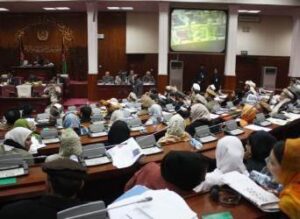KABUL (SW): Death of the Taliban Supreme leader Mullah Omar has moved from breaking news into a hot topic for analysis as commentators debates potential impacts of his death on the fate of nascent peace talks and militancy in the war-torn country.
Following Kabul government’s confirmation of the news, White house too pronounced the news as “credible”. The White House said Wednesday that U.S. officials believe reports are true that Taliban leader Mullah Mohammad Omar has been dead for two years.
“We do believe the reports of his death are credible,” said White House deputy press secretary Eric Schultz.
The landmark peace talks are likely to receive the immediate impacts as the second round of talks are likely to take place just two days after the news of Omar’s death emerged.
In an email sent to local media in Afghanistan, Taliban’s spokesman Zabehullah Mujahid has totally denied having any knowledge about the talks. Mujahid claimed only their Qatar office has the authority to make any political moves “but it was unaware about talks”, he said.
This clearly indicates the split in Taliban’s ranks over the talks.
Over two weeks ago, on the occasion of Eid-ul-Fitr, a message release by the Taliban’s official site endorsed the talks. “The objective behind interactions with countries of the world and Afghans is to bring an end to the “occupation and to establish an independent Islamic system”, the message said to be from the Supreme Leader Mullah Omar stated.
Taliban’s official website “Shahamat-english.com” ran the message. In his message, Mulla Omar also praised Taliban’s “military successes”.
Now, this split of opinion clearly underlines the divide among the Taliban over talks.
Hassan Haqyar, political analysts believe if Taliban’s representatives from their Qatar office join the talks not only are the two sides more likely to reach a truce but Taliban are also more likely to keep their promises on other fronts as well.
Michael Kugelman, a senior associate for South Asia at the Woodrow Wilson International Center for Scholars believed the Islamic State of Iraq and Syria (ISIS) commonly known as Daesh could be a big winner from Mullah Omar’s death.
In his latest op-ed, Kugelman said Omar’s death could provide ISIS with its biggest recruitment tool to date in Afghanistan. “Numerous Taliban militants in Afghanistan and Pakistan, unhappy about their leader’s long absence, had already started affirming allegiance to Islamic State”, he stated.
Assessing the impacts it could have on the peace talks, he argued that a vacancy at the top could provide an opening for Taliban hard-liners to seek to scale back the group’s role in negotiations.
ENDS





